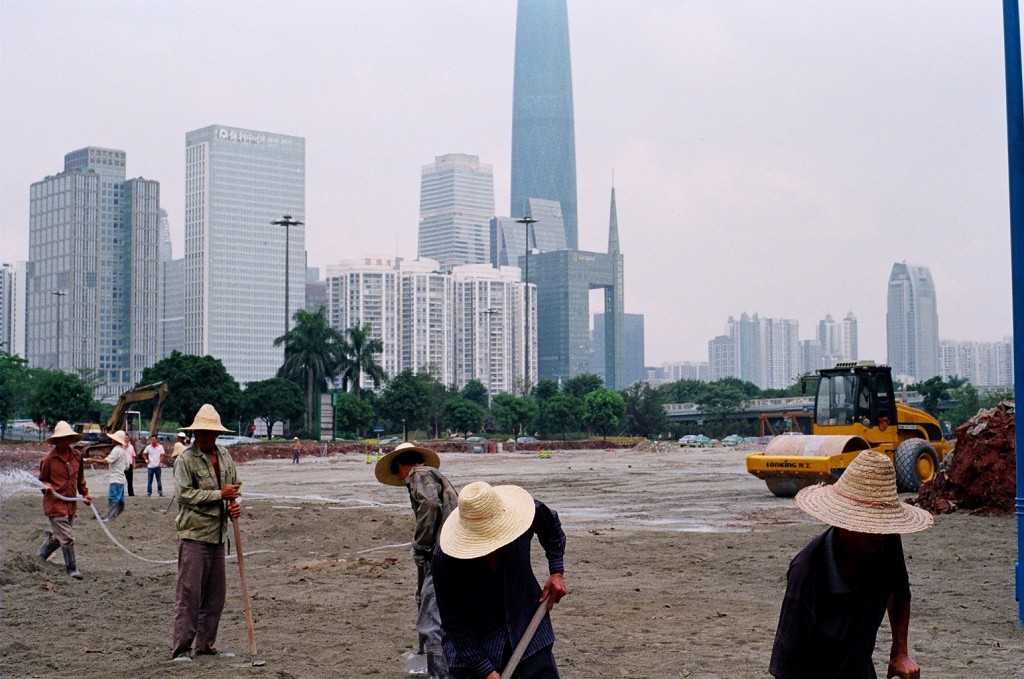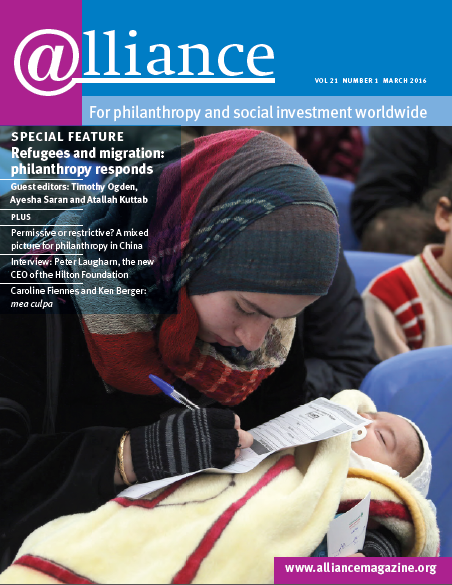The case for migration as an effective tool to combat poverty is more than 100,000 years old – and has yet to be contradicted. Migration is what early human hunter-gatherers did to survive. Migration took them from Africa into the rest of the world. Migration led them to the river valleys of Mesopotamia and South Asia. Further migration to these fertile valleys generated societies. It is not overstating the case to say that migration created civilization. And when early civilizations collapsed under pressure from war, disease or famine, it was migration to other societies that kept knowledge from being lost and allowed development to continue.
The history of humankind is a history of migration. Being removed from that history by large spans of time makes it easy for us to think of this history as large, coordinated movements of people. But it is better understood as the stories of individuals and families making decisions to move to find a better life.
The dramatic declines in absolute poverty in the last 50 years are primarily the result of families migrating from rural areas to cities, in China especially but also elsewhere. Among economists, rural-to-urban migration is known as the foundation of development: people can be much more productive in urban environments than in rural ones. More productive people means more wealth and less poverty for everyone. It is true that the conditions for the poor in many developing world cities are abysmal. But they were also abysmal in New York, London and Paris when those cities absorbed hundreds of thousands of migrants from rural areas seeking a better life. It was the migrants’ increased productivity that created the wealth to improve those cities. Healthy, livable cities don’t emerge despite migrants but because of them.
The wealth generated by migrants to cities also created the fortunes of the owners of the businesses that employed them: Rockefeller, Ford, Wellcome, Nobel, Bosch. In other words, the history of foundations is a history of migrants. And the future of institutional philanthropy is built on migrants as well: the wealth of Ambani and Mittal (owners of factories driven by urban workers), Ibrahim (cellular networks require dense populations to begin), Kamprad (dense housing) and Zuckerberg (dense population of tech talent) is all built on migration.
‘It is far more common to find philanthropic programmes aiming to prevent families from leaving their rural farms and migrating to cities than it is to find programmes that enable them to do so.’
Despite this, philanthropy has largely ignored – or even worked against – people migrating to escape poverty. It is far more common to find philanthropic programmes aiming to prevent families from leaving their rural farms and migrating to cities than it is to find programmes that enable them to do so. Institutional philanthropy has, unfortunately, not looked to the history of humanity’s escape from poverty for lessons on how to enable more to escape it.

A Kali’na hunter with a woman gatherer. Migration was essential to survival. Scanned from Na’na Kali’na: Une histoire des Kali’na en Guyane.
Migration is the most successful anti-poverty strategy for families in every era and every region of the world. If we accept that, a world of possibilities for battling poverty opens up. And yet, for some reason, the idea of allowing people to escape from poverty by moving, particularly if that means moving across national borders, seems to make us afraid.
It is true that migration has sometimes destroyed nations and cultures. But the cases where it has happened have something in common: they are migrations where relatively wealthy people invaded the territory of poorer ones (see colonialism). I can find no examples of migrants from poor countries harming the long-term wellbeing of richer countries since the fall of Rome – even though every wave of global migration from poorer countries to richer ones has been forecast to do so.
Institutional philanthropy around the world needs to acknowledge the central role that migration plays in reducing poverty (and creating philanthropic wealth). Migration is the greatest tool in the anti-poverty arsenal. It’s time for philanthropy to put that tool to use.
Timothy Ogden is the managing director of the Financial Access Initiative at NYU-Wagner and a contributing editor to Alliance. Email timothy.ogden@nyu.edu







Comments (1)
This is a very valid view-point indeed, and one that has been pretty much overlooked in the public and political debate over the European refugee crisis. Arguably, the fall of the Roman Empire is indeed an exception to the rule, as are a few other historical instances. But the general rule is certainly true. Migration is at the bottom of urban development. We should spread this message much more vigorously rather than trying to fathom out differences between ("good") refugees and ("bad") migrants.